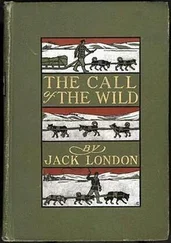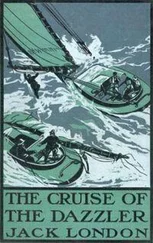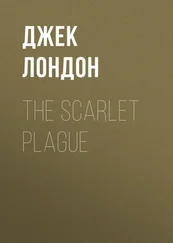Jack London - The Scarlet Plague
Здесь есть возможность читать онлайн «Jack London - The Scarlet Plague» весь текст электронной книги совершенно бесплатно (целиком полную версию без сокращений). В некоторых случаях можно слушать аудио, скачать через торрент в формате fb2 и присутствует краткое содержание. Жанр: Классическая проза, на английском языке. Описание произведения, (предисловие) а так же отзывы посетителей доступны на портале библиотеки ЛибКат.
- Название:The Scarlet Plague
- Автор:
- Жанр:
- Год:неизвестен
- ISBN:нет данных
- Рейтинг книги:4 / 5. Голосов: 1
-
Избранное:Добавить в избранное
- Отзывы:
-
Ваша оценка:
- 80
- 1
- 2
- 3
- 4
- 5
The Scarlet Plague: краткое содержание, описание и аннотация
Предлагаем к чтению аннотацию, описание, краткое содержание или предисловие (зависит от того, что написал сам автор книги «The Scarlet Plague»). Если вы не нашли необходимую информацию о книге — напишите в комментариях, мы постараемся отыскать её.
The Scarlet Plague — читать онлайн бесплатно полную книгу (весь текст) целиком
Ниже представлен текст книги, разбитый по страницам. Система сохранения места последней прочитанной страницы, позволяет с удобством читать онлайн бесплатно книгу «The Scarlet Plague», без необходимости каждый раз заново искать на чём Вы остановились. Поставьте закладку, и сможете в любой момент перейти на страницу, на которой закончили чтение.
Интервал:
Закладка:
Hare-Lip rose to his feet, glanced to see that the goats were safe, and looked at the sun's position in the afternoon sky, advertising impatience at the prolixity of the old man's tale. Urged to hurry by Edwin, Granser went on.
"There is little more to tell. With my two dogs and my pony, and riding a horse I had managed to capture, I crossed the San Joaquin and went on to a wonderful valley in the Sierras called Yosemite . In the great hotel there I found a prodigious supply of tinned provisions. The pasture was abundant, as was the game, and the river that ran through the valley was full of trout. I remained there three years in an utter loneliness that none but a man who has once been highly civilized can understand. Then I could stand it no more. I felt that I was going crazy. Like the dog, I was a social animal and I needed my kind. I reasoned that since I had survived the plague, there was a possibility that others had survived. Also, I reasoned that after three years the plague germs must all be gone and the land be clean again.
"With my horse and dogs and pony, I set out. Again I crossed the San Joaquin Valley , the mountains beyond, and came down into Livermore Valley . The change in those three years was amazing. All the land had been splendidly tilled, and now I could scarcely recognize it, 'such was the sea of rank vegetation that had overrun the agricultural handiwork of man. You see, the wheat, the vegetables, and orchard trees had always been cared for and nursed by man, so that they were soft and tender. The weeds and wild bushes and such things, on the contrary, had always been fought by man, so that they were tough and resistant. As a result, when the hand of man was removed, the wild vegetation smothered and destroyed practically all the domesticated vegetation. The coyotes were greatly increased, and it was at this time that I first encountered wolves, straying in twos and threes and small packs down from the regions where they had always persisted.
"It was at Lake Temescal , not far from the one-time city of Oakland , that I came upon the first live human beings. Oh, my grandsons, how can I describe to you my emotion, when, astride my horse and dropping down the hillside to the lake, I saw the smoke of a campfire rising through the trees. Almost did my heart stop beating. I felt that I was going crazy. Then I heard the cry of a babe—a human babe. And dogs barked, and my dogs answered. I did not know but what I was the one human alive in the whole world. It could not be true that here were others—smoke, and the cry of a babe.
"Emerging on the lake, there, before my eyes, not a hundred yards away, I saw a man, a large man. He was standing on an outjutting rock and fishing. I was overcome. I stopped my horse. I tried to call out but could not. I waved my hand. It seemed to me that the man looked at me, but he did not appear to wave. Then I laid my head on my arms there in the saddle. I was afraid to look again, for I knew it was an hallucination, and I knew that if I looked the man would be gone. And so precious was the hallucination, that I wanted it to persist yet a little while. I knew, too, that as long as I did not look it would persist.
"Thus I remained, until I heard my dogs snarling, and a man's voice. What do you think the voice said? I will tell you. It said: ' Where in hell did you come from?? '
"Those were the words, the exact words. That was what your other grandfather said to me, Hare-Lip, when he greeted me there on the shore of Lake Temescal fifty-seven years ago. And they were the most ineffable words I have ever heard. I opened my eyes, and there he stood before me, a large, dark, hairy man, heavy-jawed, slant-browed, fierce-eyed. How I got off my horse I do not know. But it seemed that the next I knew I was clasping his hand with both of mine and crying. I would have embraced him, but he was ever a narrow-minded, suspicious man, and he drew away from me. Yet did I cling to his hand and cry."
Granser's voice faltered and broke at the recollection, and the weak tears streamed down his cheeks while the boys looked on and giggled.
"Yet did I cry," he continued, "and desire to embrace him, though the Chauffeur was a brute, a perfect brute—the most abhorrent man I have ever known. His name was… strange, how I have forgotten his name. Everybody called him Chauffeur—it was the name of his occupation, and it stuck. That is how, to this day, the tribe he founded is called the Chauffeur Tribe.
"He was a violent, unjust man. Why the plague germs spared him I can never understand. It would seem, in spite of our old metaphysical notions about absolute justice, that there is no justice in the universe. Why did he live?—an iniquitous, moral monster, a blot on the face of nature, a cruel, relentless, bestial cheat as well. All he could talk about was motor cars, machinery, gasoline, and garages—and especially, and with huge delight, of his mean pilferings and sordid swindlings of the persons who had employed him in the days before the coming of the plague. And yet he was spared, while hundreds of millions, yea, billions, of better men were destroyed.
"I went on with him to his camp, and there I saw her, Vesta, the one woman. It was glorious and… pitiful. There she was, Vesta Van Warden, the young wife of John Van Warden, clad in rags, with marred and scarred and toil-calloused hands, bending over the campfire and doing scullion work—she, Vesta, who had been born to the purple of the greatest baronage of wealth the world had ever known. John Van Warden, her husband, worth one billion, eight hundred millions and President of the Board of Industrial Magnates, had been the ruler of America . Also, sitting on the International Board of Control, he had been one of the seven men who ruled the world. And she herself had come of equally noble stock. Her father, Philip Saxon, had been President of the Board of Industrial Magnates up to the time of his death. This office was in process of becoming hereditary, and had Philip Saxon had a son that son would have succeeded him. But his only child was Vesta, the perfect flower of generations of the highest culture this planet has ever produced. It was not until the engagement between Vesta and Van Warden took place, that Saxon indicated the latter as his successor. It was, I am sure, a political marriage. I have reason to believe that Vesta never really loved her husband in the mad passionate way of which the poets used to sing. It was more like the marriages that obtained among crowned heads in the days before they were displaced by the Magnates.
"And there she was, boiling fish-chowder in a soot-covered pot, her glorious eyes inflamed by the acrid smoke of the open fire. Hers was a sad story. She was the one survivor in a million, as I had been, as the Chauffeur had been. On a crowning eminence of the Alameda Hills, overlooking San Francisco Bay , Van Warden had built a vast summer palace. It was surrounded by a park of a thousand acres. When the plague broke out, Van Warden sent her there. Armed guards patrolled the boundaries of the park, and nothing entered in the way of provisions or even mail matter that was not first fumigated. And yet did the plague enter, killing the guards at their posts, the servants at their tasks, sweeping away the whole army of retainers—or, at least, all of them who did not flee to die elsewhere. So it was that Vesta found herself the sole living person in the palace that had become a charnel house.
"Now the Chauffeur had been one of the servants that ran away. Returning, two months afterward, he discovered Vesta in a little summer pavilion where there had been no deaths and where she had established herself. He was a brute. She was afraid, and she ran away and hid among the trees. That night, on foot, she fled into the mountains—she, whose tender feet and delicate body had never known the bruise of stones nor the scratch of briars. He followed, and that night he caught her. He struck her. Do you understand? He beat her with those terrible fists of his and made her his slave. It was she who had to gather the firewood, build the fires, cook, and do all the degrading camp-labor—she, who had never performed a menial act in her life. These things he compelled her to do, while he, a proper savage, elected to lie around camp and look on. He did nothing, absolutely nothing, except on occasion to hunt meat or catch fish."
Читать дальшеИнтервал:
Закладка:
Похожие книги на «The Scarlet Plague»
Представляем Вашему вниманию похожие книги на «The Scarlet Plague» списком для выбора. Мы отобрали схожую по названию и смыслу литературу в надежде предоставить читателям больше вариантов отыскать новые, интересные, ещё непрочитанные произведения.
Обсуждение, отзывы о книге «The Scarlet Plague» и просто собственные мнения читателей. Оставьте ваши комментарии, напишите, что Вы думаете о произведении, его смысле или главных героях. Укажите что конкретно понравилось, а что нет, и почему Вы так считаете.







